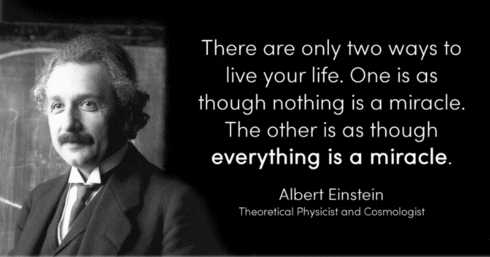No Blog Eletrônica de Potência você encontrará informações sobre teses,artigos,seminarios,congressos,tecnologias,cursos,sobre eletrônica potência. “TEMOS O DESTINO QUE MERECEMOS. O NOSSO DESTINO ESTA DE ACORDO COM OS NOSSOS MERITOS” ALBERT EINSTEIN. Imagination is more important than knowledge, for knowledge is limited while imagination embraces the entire world. EL FUTURO SE CONSTRUYE HOY,EL SUCESSO NO ES FRUTO DE LA CASUALIDAD,SE HUMILDE ,APRENDE SIEMPRE CADA DIA.
AUTOR DO BLOG ENG.ARMANDO CAVERO MIRANDA SÃO PAULO BRASIL

.gif)
“GRAÇAS A DEUS PELA VIDA,PELA MINHA FAMÍLIA,PELO TRABALHO.PELO PÃO DE CADA DIA,POR NOS PROTEGER DO MAL”
“SE SEUS PROJETOS FOREM PARA UM ANO,SEMEIE O GRÂO.SE FOREM PARA DEZ ANOS,PLANTE UMA ÁRVORE.SE FOREM PARA CEM ANOS,EDUQUE O POVO”


https://picasion.com/


sexta-feira, 28 de junho de 2019
sábado, 22 de junho de 2019
AUTOMATIC CONTROL-CHAPTER 8 -ROOT LOCUS TECHNIQUE 01-INSTRUCTOR-Kwan-Woong Gwak- Sejong University Mechanical and Aerospace Engineering
AUTOMATIC CONTROL-CHAPTER 8 -ROOT LOCUS TECHNIQUE 01-INSTRUCTOR-Kwan-Woong Gwak- Sejong University Mechanical and Aerospace Engineering
Course Title
Automatic Control -Instructor Kwan-Woong Gwak
This course introduces the basic principles of feedback control of dynamic system, related system analysis technics, and the design of the controller satisfying the given dynamic specifications.
To achieve the course goals, system modeling technics describing the dynamic systems into mathematical differential equations, technics (root locus, Nyquist) analyzing the dynamic characteristics (stability, tranqusient response) in both time and frequency domain will be
studied.
Also, PID and lead-lag controller design method that makes the system dynamic characteristics satisfy the required specifications will beinvestigated.
Main text: Franklin, Powell, Emami-Naeini, "Feedback Control of Dynamic Systems",
7th ed., Pearson Education
reference: Normal S. Nise, "Control Systems Engineering", 5th ed., Wiley
Ogata, "Modern Control Engineering", 4th ed., Prentice Hall
Franklin, Powell, Emami-Naeini, "Feedback Control of Dynamic Systems", 6th ed.,
Pearson Education
http://www.kocw.net/home/search/kemView.do?kemId=1321135
sexta-feira, 21 de junho de 2019
Lyapunov Function Based Control for Single-Switch Isolated Converters by Seok-Min Wi Department of Electrical Engineering Pohang University of Science and Technology
Lyapunov Function Based Control for Single-Switch Isolated Converters by Seok-Min Wi Department of Electrical Engineering Pohang University of Science and Technology
A dissertation submitted to the faculty of the Pohang University of Science and Technology in partial fullment of the requirements for the degree of Doctor of Philosophy in the Department of Electrical Engineering Pohang, Korea
Abstract
In this dissertation, we propose a Lyapunov function based control scheme for a single-switch isolated converter. A single-switch isolated converter can be designed to operate either in the discontinuous conduction mode (DCM) or in the continuous conduction mode (CCM). Naturally, a single-switch isolated converter operating in di erent modes results in di erent dynamics. When it operates in CCM, it su ers from nonminimum phase behavior due to the occurrence of right-half-plane zeros in its transfer function. When it operates in DCM, it experiences low system gain. Thus, it is di - cult to stabilize the isolated converter operating only in CCM, and both in DCM and CCM. With regard to control design of the single-switch isolated converter, the small signal model around a xed operating point has been popular due to its simplicity. However, linearized model cannot re ect the complete dynamic behavior of the single-switch isolated converter particularly under large perturbations from the operating point. For this reason, it shows poor transient response under large-signal perturbation. Therefore, a nonlinear controller should be developed that does not require any linearization process in case of large-signal perturbation. The Lyapunov function based control strategy, which usually o ers a solution that guarantees global asymptotic stability under large perturbations from the operating point. In constructing the controller, we rst derive the large-signal nonlinear dynamic model of the single-switch isolated converter using averaged state-space modeling technique considering the parasitic components. After that, we develop the duty-ratio feedforward control part and use it to derive the error dynamics. The resulting error dy namic model is then used to develop the Lyapunov function based feedback controller. The proposed control scheme consists of two components: the duty-ratio feedforward control term that helps the output voltage to track the reference voltage, and the Lyapunov function based feedback control term that drives the closed-loop system to become globally exponentially stable. The control system guarantees global exponential stability of the closed-loop system and provides fast transient response under largesignal perturbations. Numerical simulations con rmed its superior performance, and experimental tests validated the proposed control approach.
LINK
http://postech.dcollection.net/public_resource/pdf/200000007651_20190622041129.pdf
Assinar:
Comentários (Atom)











